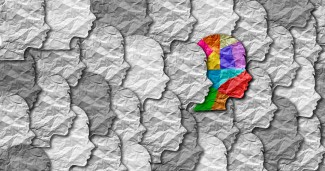Ability to understand that others have thoughts, emotions and beliefs that are not necessarily the same as our own.
In other words, it is the ability to put oneself in the shoes of others to imagine what he or she feels, knows or believes.
This capacity usually appears between the ages of 3 and 5 in children and plays a fundamental role in:
- communication,
- empathy,
- cooperation,
- and social interactions in general.
It is also a central subject in neuroscience and psychology, particularly in the study of conditions such as autism, where theory of mind may be more difficult to develop.

Autism spectrum disorders
Autism, or autism spectrum disorder, is a neurodevelopmental disorder that has two main symptoms: persistent problems with communication and social interaction in a variety of contexts; and restricted and repetitive behaviour, interests and...
Read moreOther Words That May Be of Interest to You
- Bouba-kiki (effect) :
- The bouba-kiki effect characterizes the association between the visual form and the pronunciation of the name we might give it.
- Deoxyribonucleic acid (DNA) :
- Deoxyribonucleic acid (DNA) contains all the genetic information, known as the genome, that enables living organisms to develop, function and reproduce.

